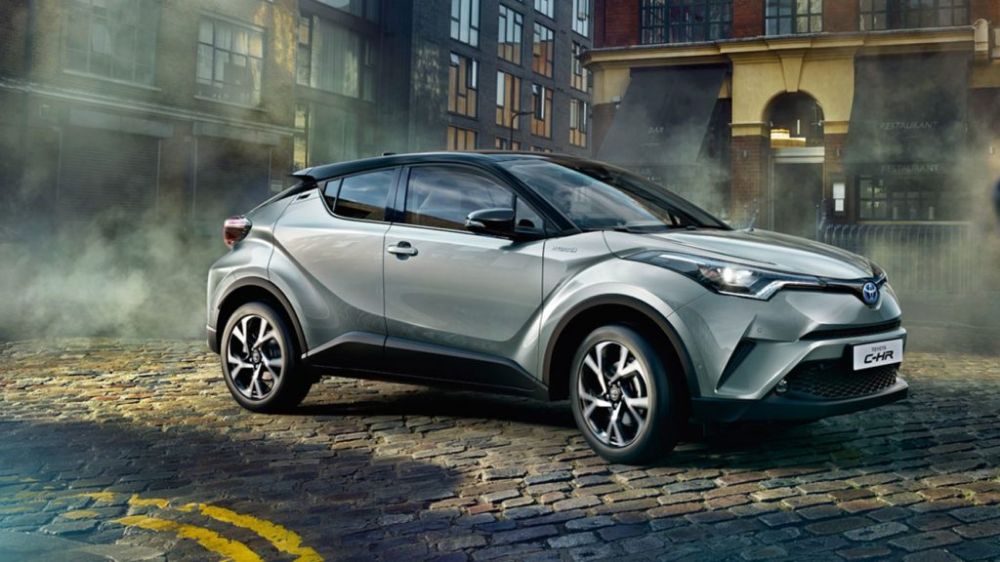As the automotive industry evolves, many consumers are asking themselves, Is now the right time to buy a hybrid car? With rising fuel prices, increasing environmental awareness, and advancements in hybrid technology, the decision to invest in a hybrid vehicle has never been more relevant. Hybrid cars offer a unique blend of efficiency and performance, making them an attractive option for eco-conscious drivers and budget-savvy consumers alike.
In this article, we will delve into the current market trends that influence the hybrid car landscape, including government incentives and the latest technological advancements. You will learn about the long-term savings associated with hybrid vehicles, as well as the environmental benefits that come with reducing your carbon footprint. Additionally, we will explore the various models available, helping you make an informed decision tailored to your needs.
Whether you are a first-time car buyer or looking to upgrade your current vehicle, understanding the advantages of hybrid cars can significantly impact your choice. Join us as we navigate through the essential factors that determine if now is indeed the right time to make the switch to a hybrid car. Read on to discover valuable insights that will empower you in your car-buying journey!
As the automotive industry evolves, hybrid cars have gained significant attention due to their fuel efficiency and reduced environmental impact. This article explores various factors that can help potential buyers decide if now is the right time to invest in a hybrid vehicle.
Current Market Trends in Hybrid Vehicles
The hybrid car market has seen substantial growth in recent years, driven by increasing consumer awareness of environmental issues and rising fuel prices. Many manufacturers are expanding their hybrid offerings, providing a wider range of options for buyers. This trend indicates a shift towards more sustainable transportation solutions, making it an opportune time to consider a hybrid vehicle.
Additionally, government incentives and rebates for hybrid car purchases are becoming more common, further encouraging consumers to make the switch. These financial benefits can significantly reduce the overall cost of ownership, making hybrids more appealing than traditional gasoline vehicles.
Fuel Efficiency and Cost Savings
One of the primary advantages of hybrid cars is their fuel efficiency. With rising fuel prices, many consumers are looking for ways to save on gas. Hybrid vehicles typically offer better mileage than their conventional counterparts, which can lead to substantial savings over time. For instance, a hybrid car can achieve 50 miles per gallon or more, compared to 25-30 miles per gallon for a standard vehicle.
Moreover, the long-term cost savings associated with lower fuel consumption can offset the initial purchase price of a hybrid. When considering the total cost of ownership, including maintenance and fuel expenses, hybrids often prove to be a financially sound investment.
Environmental Impact and Sustainability
As climate change becomes an increasingly pressing issue, many consumers are seeking ways to reduce their carbon footprint. Hybrid cars produce fewer emissions than traditional vehicles, making them a more environmentally friendly option. By choosing a hybrid, consumers can contribute to a reduction in greenhouse gas emissions and promote sustainable practices.
Furthermore, many hybrid models are designed with eco-friendly materials and technologies, enhancing their sustainability profile. This commitment to environmental responsibility resonates with a growing segment of the population that prioritizes eco-conscious choices in their purchasing decisions.
Technological Advancements in Hybrid Cars
The technology behind hybrid vehicles has advanced significantly, resulting in improved performance, reliability, and user experience. Modern hybrids often come equipped with advanced features such as regenerative braking, which captures energy during braking and uses it to recharge the battery. This innovation not only enhances fuel efficiency but also contributes to a smoother driving experience.
Additionally, many hybrid models now offer cutting-edge infotainment systems, safety features, and connectivity options, making them more appealing to tech-savvy consumers. As technology continues to evolve, hybrid cars are becoming increasingly competitive with traditional vehicles in terms of performance and features.
Resale Value and Market Demand
When considering a vehicle purchase, potential buyers should also take resale value into account. Hybrid cars tend to hold their value well due to their growing popularity and demand in the used car market. As more consumers become aware of the benefits of hybrid vehicles, the demand for used hybrids is expected to rise, making them a smart investment.
Moreover, the increasing focus on sustainability and fuel efficiency is likely to keep hybrid cars in demand for years to come. This trend suggests that buyers can expect a favorable resale value when it comes time to sell or trade in their hybrid vehicle.
Conclusion: Is Now the Right Time?
In conclusion, the decision to buy a hybrid car depends on various factors, including market trends, fuel efficiency, environmental impact, technological advancements, and resale value. Given the current landscape, now may be an ideal time to invest in a hybrid vehicle. With numerous options available, financial incentives, and a growing emphasis on sustainability, potential buyers have compelling reasons to consider making the switch to a hybrid car.
Ultimately, individuals should assess their personal needs, budget, and driving habits to determine if a hybrid vehicle aligns with their lifestyle. As the automotive industry continues to evolve, hybrid cars are likely to play a significant role in shaping the future of transportation.
| Factor | Details |
|---|---|
| Fuel Prices | With fluctuating fuel prices, hybrid cars can offer significant savings on fuel costs compared to traditional gasoline vehicles. |
| Environmental Concerns | As awareness of climate change grows, many consumers are looking for eco-friendly options. Hybrid cars produce fewer emissions than conventional cars. |
| Government Incentives | Many governments offer tax credits, rebates, or other incentives for purchasing hybrid vehicles, making them more financially attractive. |
| Technological Advancements | Hybrid technology has improved significantly, offering better performance, efficiency, and reliability than earlier models. |
| Resale Value | Hybrid cars often have a higher resale value due to their popularity and demand in the used car market. |
| Charging Infrastructure | As charging stations become more widespread, the convenience of owning a hybrid or plug-in hybrid increases, making them a more viable option. |
| Personal Driving Needs | Consider your driving habits. If you frequently drive in urban areas or have a short commute, a hybrid car may be particularly beneficial. |



